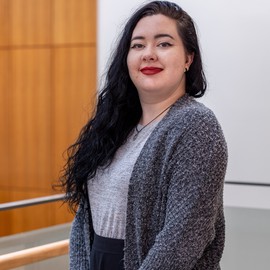Abstract
The information structures, styles and priorities of those in the disabled community are vastly different from those that make up academic culture, creating a disparity between the needs of disabled students and the support of the university accommodations system. With mixed methods data that describes the post-secondary accommodations system, a model of overlapping frames of information access and use could be created that would allow for an in-depth analysis of information and the disabled post-secondary experience. In addition to contributing to the literature on post-secondary disability and accessibility, this research will also produce concrete recommendations to improve post-secondary accommodations systems.
Date
May 27, 2025 15:45 ADT — 14:10 ADT

Mx. Drew Fitzgerald (they/them). As a disabled Indigenous person, I navigate the post-secondary information system as a student and employee with and without recognized accommodations, as an advocate, and as an outsider. My experience studying educational pedagogy, with a focus on Universal Design for Learning, and subsequent work in a range of information fields and cultural heritage, informs my focus on translating individual experiences into informational models that benefit all users. My background in public librarianship, cultural heritage data, and quantitative research give me unique insight into systems of information interaction and power structures, to best allow me to improve the experiences of future disabled university students. I believe that that the world is built upon the stories we preserve and share by, for, and about each other. To make a better world, you have to listen to the authentic narratives of those around you and build those lessons into your life and practice. As an information management professional, my work is built on and around the stories of the communities I serve and the lived experiences that guide them. I believe in stories, and stories will forever be the foundation of my work.